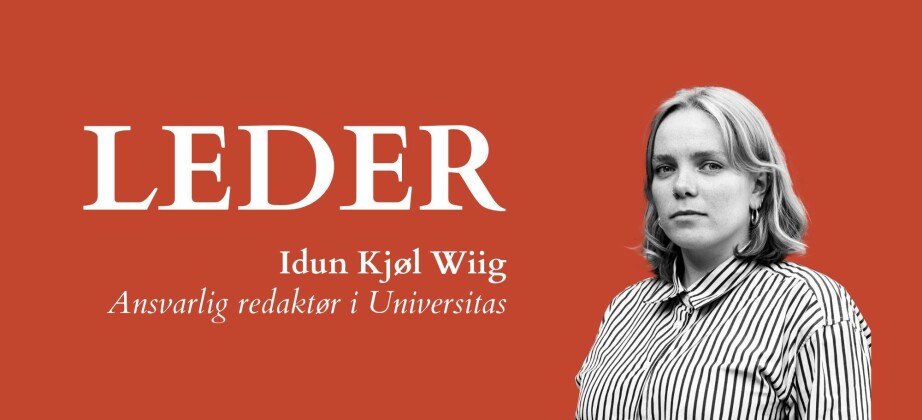
Comment:
Norwegian Work Environment Is Not Always Perfect
If you are an international student from outside the EU, adapting to the unwritten rules at your workplace in Norway will most likely be a challenge.
Arriving in Norway, each international student is like a newborn child, exploring this quiet, fresh, and somewhat aloof and reserved country. Compared to campus life, social and part-time working environments are more varied and salient for international students when it comes to encountering cultural differences. “I follow an international programme, taught in English, and my classmates are all from different countries and very diverse. In the classroom, I hardly feel the impact from the cultural differences; everyone is the same and can share experiences from different cultural backgrounds. But in my part-time job, I always feel a hint of frustration — simply because of the language barrier,” a friend of mine from an East Asian country told me about her experience of living in Oslo for the past six months or so.
I posted a questionnaire on the International Students at the University of Oslo Facebook group about the difficulties of cultural differences students might face in a part-time working environment. Of the 30 respondents, over 80% had part-time jobs. “Although our class of international students is still entitled to the free tuition policy in Norway, the high and rising prices in Norway have forced me to work part-time, even though I would love to be fully engaged in my studies,” said a master’s student from an EU country.
In addition, the questionnaire shows that almost 30% of students who work part-time have more than one job. Two of the respondents said that even though they had the permission of 20 hours of work per week, it was difficult to find a regular part-time job because of various problems such as language issues or a job market skewed towards locals. Besides, it was too problematic to fit in the on-call part-time work ethic, because the pace of one's life is constantly disrupted. But you have to adapt anyway.
One international student from China was “subjected to an unprecedented culture shock” during her teaching practice. Her mentor felt that the Chinese teachers were too rigid and hard-working and did not give the students enough room for development. She felt that the Norwegian teaching was too loose and free. In her internship classes, students could innocently ask her this question: “Do Chinese people eat dog meat?” She knew it was posed just out of curiosity and not cultural discrimination but still felt a little offended. In a follow-up chat with me, she said that her mentor has changed his mind because of the excellent feedback from her internship class, but “there was still a sort of nativist attitude from him. But perhaps I was personally over-sensitive.”
Since finding a more convenient, “office” part-time job as an international student is a challenge, most of them tend to work as waiters in restaurants owned by foreigners. “I’m not given more humane care, even though I’m from the same country as my boss. And when a newbie first starts, mistakes are inevitable, but the boss is not that patient. Sometimes I feel a little aggrieved, and the pay is not as good compared to a restaurant or bar owned by a Norwegian,” explained an Asian student working part-time at an Asian restaurant.
Another respondent also mentioned the same issue: “I am Chinese, and I worked in a Chinese food restaurant. It was the Chinese bosses and colleagues who sometimes created challenges. They would shout at you and blame you for mistakes directly, but they would not do that to a non-Chinese worker even though they would still complain about them in private. It is the cultural difference that makes bosses try to be good and polite to workers from another country, while being more willful in treating people with the same cultural background.”
However, a student from an EU country, who works part-time as a waitress in a restaurant, found the atmosphere at work in Norway to be very friendly, with flexible working hours and flat working structure. She said that in her own country she had to pretend “to be busy” even when things were done and couldn’t take a break, but here she can easily do it.
Nowadays, the upcoming tuition fees for non-EU/EEA students, rising prices and a surge in various living costs have made international students face more challenges in Norway. Without a stable full-time job and a reliable visa, the international student community is inherently vulnerable, and it is not only a matter of giving advice to international students on how to adapt to Norwegian society and work culture, but also a matter of getting more attention and support from schools, authorities, communities, etc.
The Norwegian Long-term plan for research and higher education 2023-2032 emphasizes reducing financial, social and regional disparities, preventing exclusion, protecting employment and promoting a productive, diverse and inclusive working life, and the government has also made youth participation in education, employment and society a priority area of focus in its national mission (Larrue and Santos, 2022). International students are also a large group within Norwegian society, having a part-time job is a source of economic security and self-fulfilment for them. Therefore, giving them the same sense of belonging and participation in a part-time work environment as the locals already receive may be another perspective on achieving the vision of equality that Norway has always promoted.
Reference:
Larrue, P. and R. Santos (2022), "Towards a new stage in Norway's science, technology and innovation system: Improving the long-term plan for research and higher education", OECD Science, Technology and Industry Policy Papers, No. 133, OECD Publishing, Paris, https://doi.org/10.1787/ce07b7c3-en
































